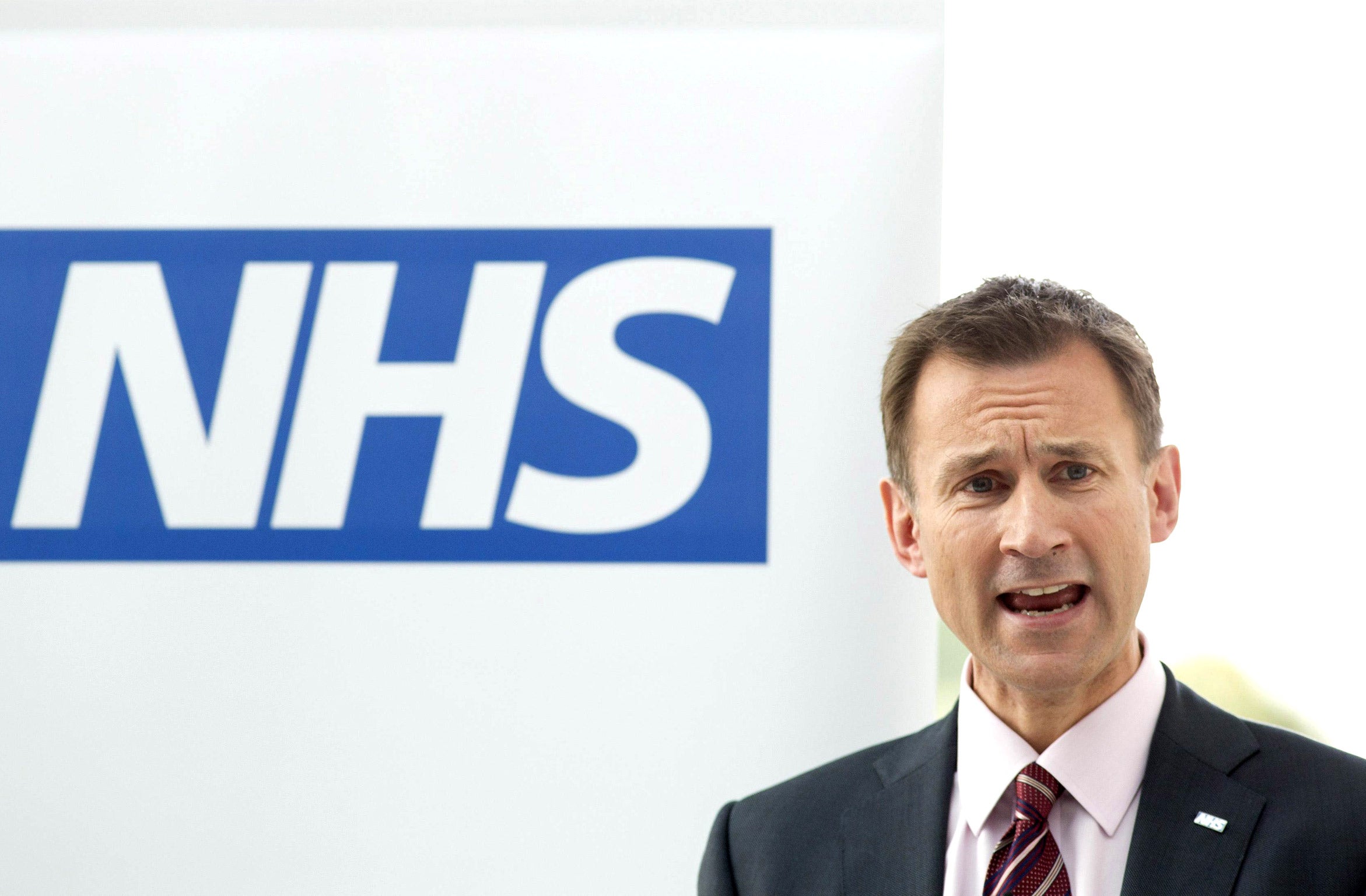Every hospital patient will get point-of-contact doctor, Health Secretary Jeremy Hunt will announce

Your support helps us to tell the story
From reproductive rights to climate change to Big Tech, The Independent is on the ground when the story is developing. Whether it's investigating the financials of Elon Musk's pro-Trump PAC or producing our latest documentary, 'The A Word', which shines a light on the American women fighting for reproductive rights, we know how important it is to parse out the facts from the messaging.
At such a critical moment in US history, we need reporters on the ground. Your donation allows us to keep sending journalists to speak to both sides of the story.
The Independent is trusted by Americans across the entire political spectrum. And unlike many other quality news outlets, we choose not to lock Americans out of our reporting and analysis with paywalls. We believe quality journalism should be available to everyone, paid for by those who can afford it.
Your support makes all the difference.Hospital patients will be allocated a named doctor with overall responsibility for their care, Jeremy Hunt will announce today.
Under plans drawn up by the Health Secretary and the Royal Colleges, both in and outpatients will, for the first time, have one clinical point of contact to co-ordinate their treatment plans.
The Government hopes the move will provide better continuity of care for patients – especially the elderly who often have multiple conditions requiring different specialist treatments.
A Royal College of Physicians survey found that nearly a quarter of hospital doctors rated their workplace’s ability to deliver continuity of care as “poor” or “very poor”.
However, the doctors’ union, the BMA, questioned whether the scheme was practical giving the growing demands on the health service and reduced resources available. Setting out his proposals, Mr Hunt said he had been moved to take action after receiving letters from patients and their families complaining about being passed around hospital without anyone taking overall responsibility for them.
“One letter I got last March was from a lady whose husband passed away after what can only be described as two years of chaotic care,” he said.
Her husband was passed around the system from clinician to clinician, with no one appearing to know anything of his needs or history.”
For those staying in hospital, Mr Hunt said patients should have their “named doctor” displayed above their bed so patients and their families know who to contact about their case.
He also wants hospitals to draw up plans to reduce the number of ward transfers.
The Care Quality Commission, the health watchdog, will be told to assess whether hospitals have properly implemented so called “whole-stay doctors” in their inspections.
Join our commenting forum
Join thought-provoking conversations, follow other Independent readers and see their replies
Comments